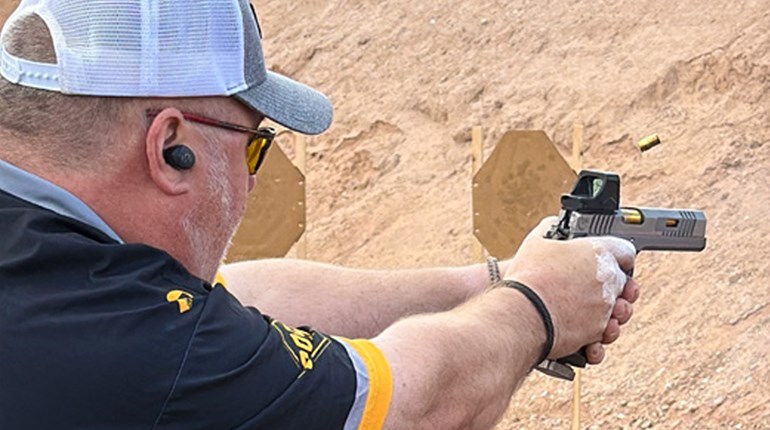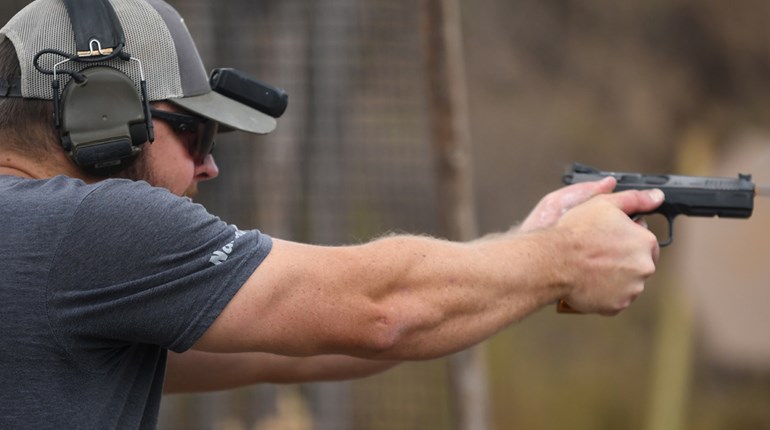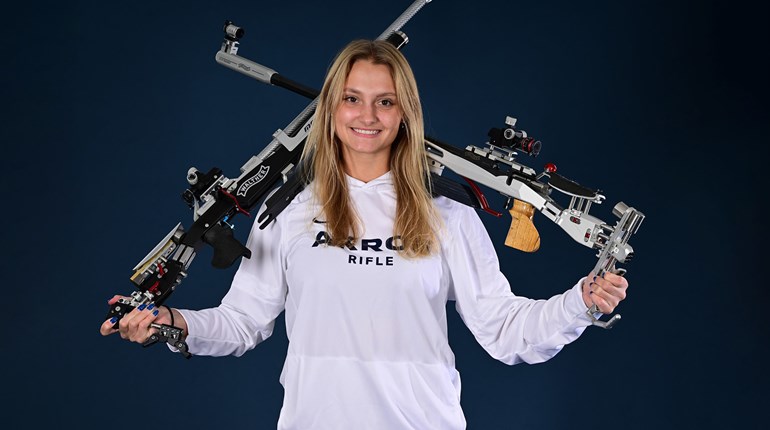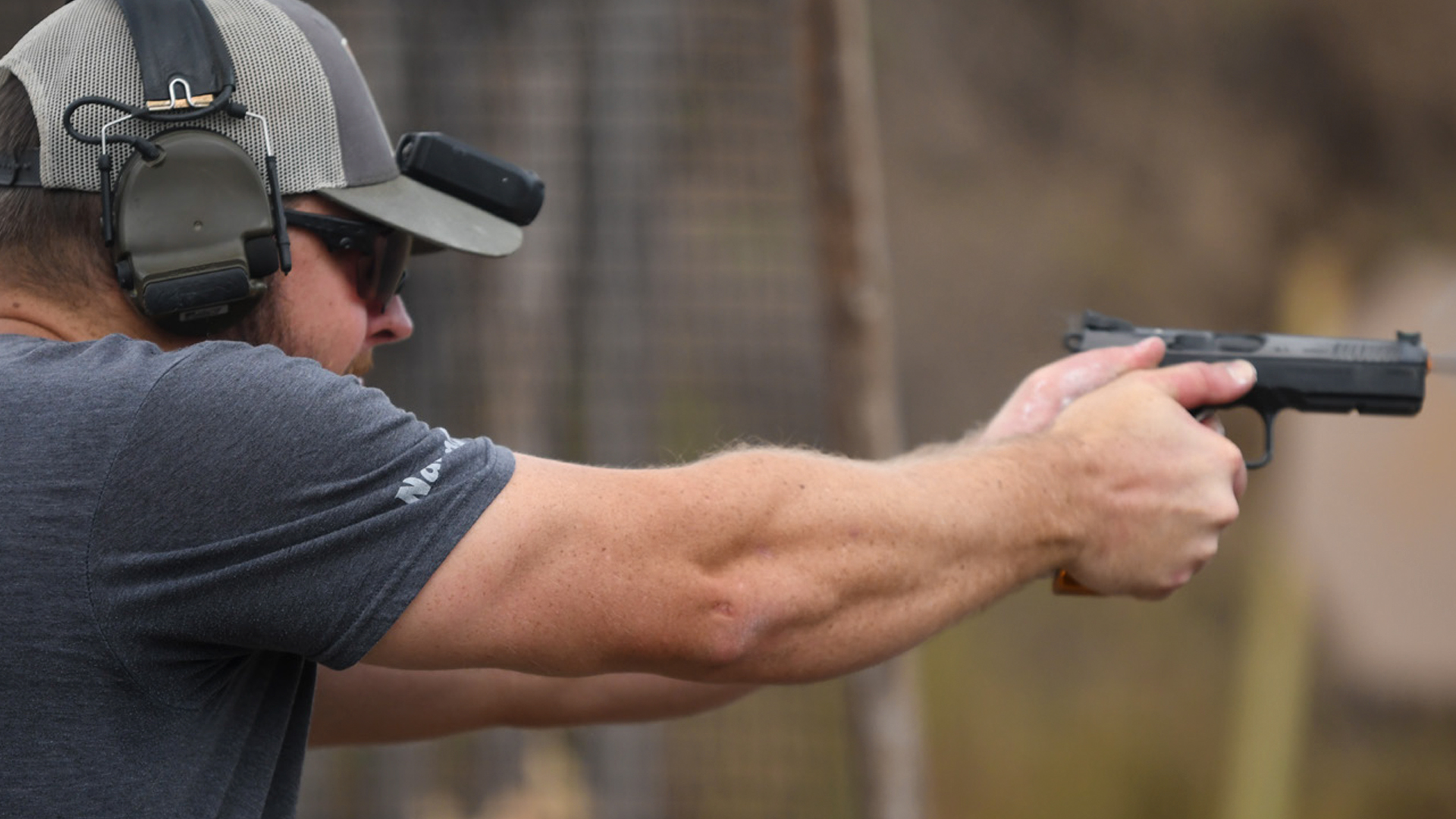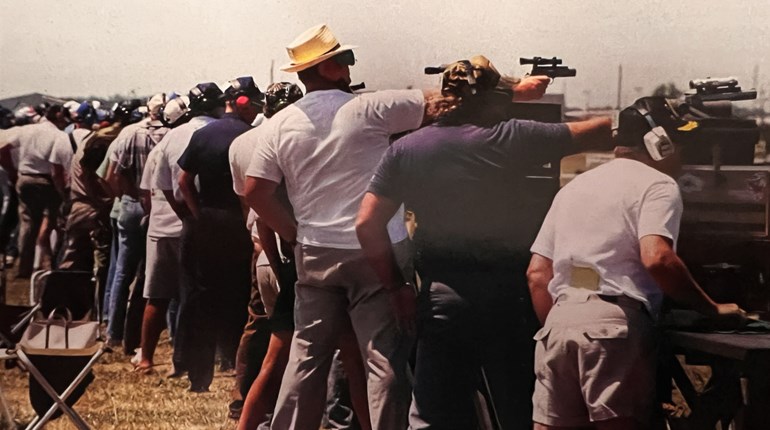
Rob Epifania is a USPSA Grand Master, champion shooter and an accomplished author. Find out what he keeps in his range bag.
What are your first memories of handling a firearm?
I began shooting in 2008 when I assembled my first AR-15 platform rifle. I enjoy playing first-person shooting games, and a friend of mine brought over one of his rifles for us to take a look at while we were working on cars. After that, I started researching what was needed to put one together (I’m a mechanical engineer) and built my first one. My original intention was to get one for enjoying at the range and personal protection.

Tell us how you began in competitive shooting?
I started competing in 2018. I had taken defensive- and tactical-based classes for years and received my NRA instructor certifications in 2012. I was helping a company called MDTS Training for several years and taking classes on my own. I was always able to perform well in defensive-oriented classes and began training with instructors who blended tactical-based shooting with performance (Travis Haley and Frank Proctor at Tactical Performance Center). Performance-based shooting took to my prior passion as a high-level athlete, and it was time to get into the competition world to see how far I could go.
Please share with us some of your major shooting accomplishments.
I’ve been fortunate to place well at many major matches, winning my first major match in the 2020 Western Pennsylvania USPSA section championship. I’ve also been fortunate to place in the top 25 and then top 20 at USPSA Nationals in 2020 and 2021. I received the rank of Grand Master in USPSA in 2021—that was one I worked hard at. I have a disability on my right foot and can’t lift it after an accident in 2010. This is why I entered competitive shooting, and I couldn’t be happier that I found this community.
Instructing people through online and in-person lessons and classes is the most important aspect of my passion for shooting.
What firearms and other gear do you use for competition?
For competition, I shoot an EAA Corp. Regard and Witness 2311. I also ran Atlas Gunworks double-stack 1911 platform guns for a while. For match ammunition I shoot Outdoor Dynamics. However, Brass Monkey Bullets has also delivered superior quality components for my training and local match ammo. My mag pouches, base pads and holster hangars are all Henning Group, and my holster body is from GX products.
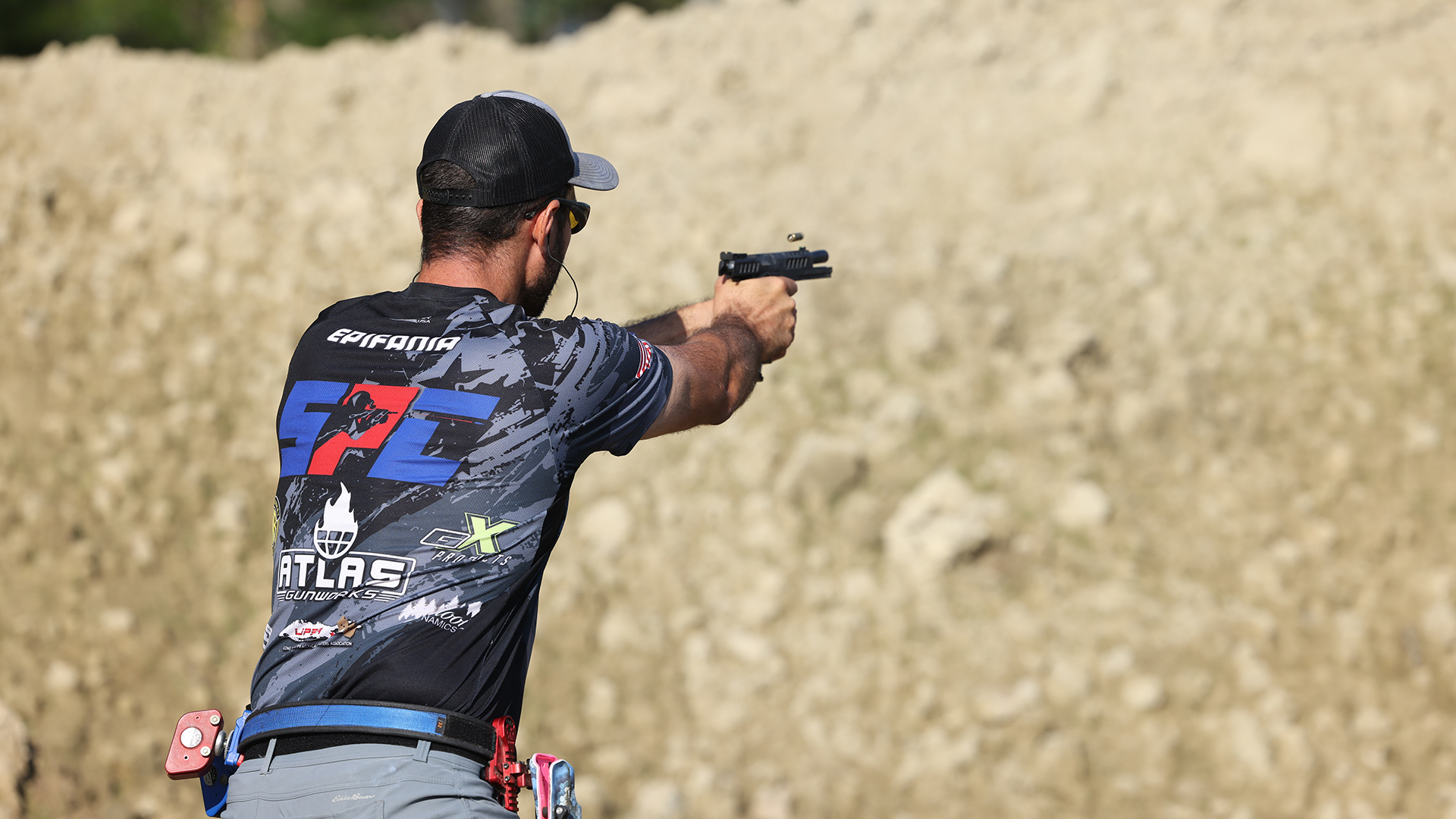
Tell us about your range bag and what you carry in it besides your firearms?
I use a Shooter’s Connection small range bag. I’m a huge fan of how small and light it is while having the ability to hold a lot of stuff. Plus, it’s red, my favorite color. Inside I always keep my match magazines, GunButter gun lube, a few spare parts and cleaning items for quick service on the range if needed. There are also batteries for optics, my Shooter’s Global timer and extra ear plugs that are made at my day job (plastic injection molding).
The most significant and helpful accessory I put on a firearm is typically something to improve the friction created with my grip. The more I trust that my grip is solid, the more my mind relaxes, which allows me to shoot faster and more accurately. My favorite so far is typically silicon carbide or skateboard tape in some high-contact regions. Replaceable grip panels are useful and easy to install on metal guns, and I typically get them from Lok Grips.
What do you do in your free time?
My free time is largely spent training. I always try to improve my skills through dry-fire, live-fire and strength training. Outside of that, I really enjoy spending time with my fiancée, Jeanine, and our dog, Gunner. I also write articles and inspirational quotes for others and like to chat with great people.
What would you tell someone interested in finding out more about your sport?
Find out what local clubs are near you and attend a match. Bring your gear because most people are welcoming, and you will want to shoot. Reach out to people like me online—most of us enjoy chatting with others and helping them succeed and get involved.
Any tips for new shooters?
Seek out competent instruction—it will greatly improve your comfort level and drastically reduce the learning curve needed to do well. Also, don’t be afraid to ask questions, even if you think they are dumb. The right people will never make you feel that way for asking because we were all new once.













